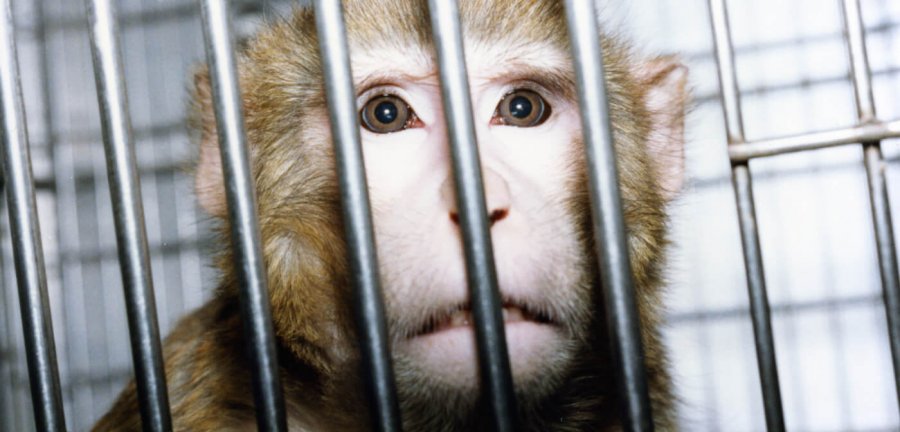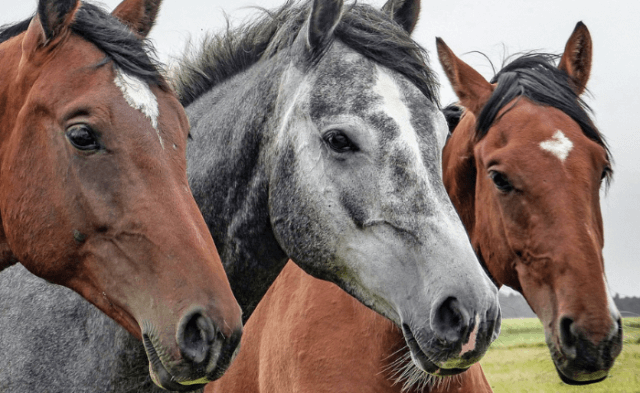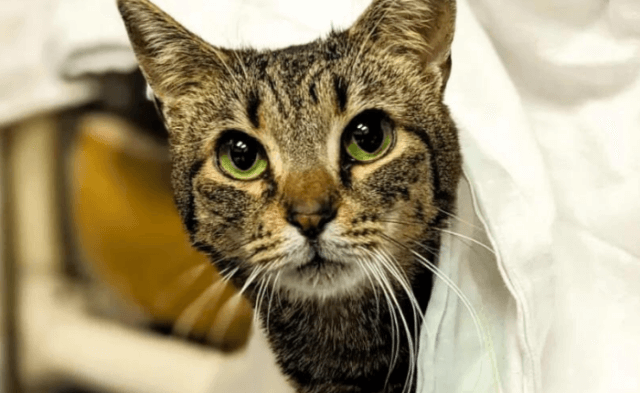By Dr. Julia Baines, PETA U.K.
I’ve always been interested in animals, and I’ve dedicated my career to helping them. But nothing prepared me for the horrors that I’ve seen inside animal laboratories.
I’ve seen mice torn apart by cagemates who had been driven insane and made aggressive by the stress of confinement. I’ve visited laboratories in which dogs are experimented on, and I’ll never forget the anguished cries of the lonely animals there. I’ve observed primates who are imprisoned in cramped, almost barren cages with no ropes for them to swing on and who have no opportunity to socialize. They’re so desperate for affection that they reach out to passing visitors, hoping for someone—anyone—to stop and notice them.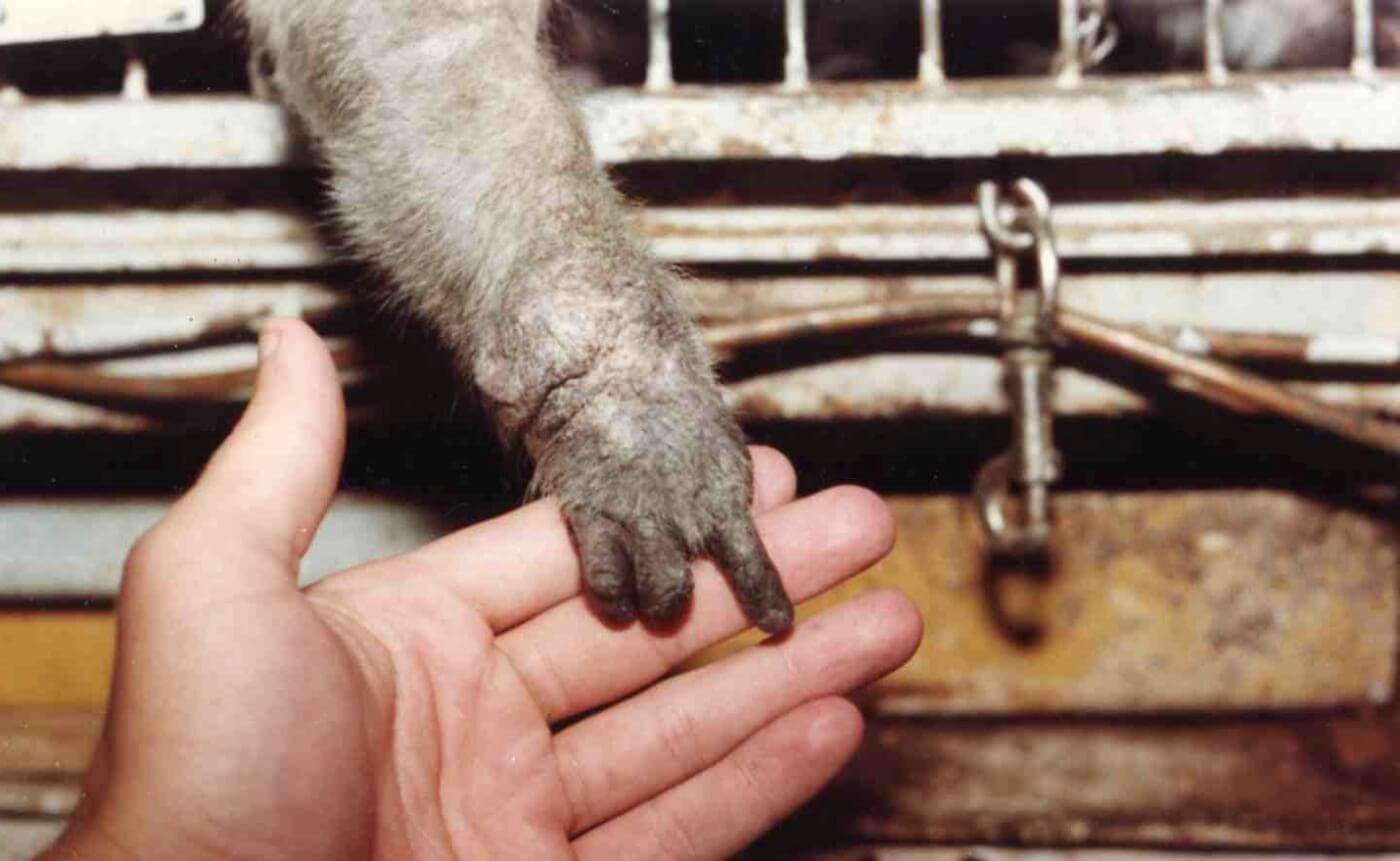
Before working for PETA U.K., I worked in an animal laboratory, where my focus was on the welfare of mice. I was tasked with conducting some animal experiments of my own and often with dissecting the corpses of the very mice I’d spent weeks observing. Wool would be soaked in fluoroethane and placed in a plastic tub. The mice would then be forced inside, and a colleague would close the lid. As the seconds dragged on, I could hear the animals scrambling around—and when we finally opened the tub, I’d see dead mice who were soaked in their own urine and covered with their own feces. Those images will forever haunt me.
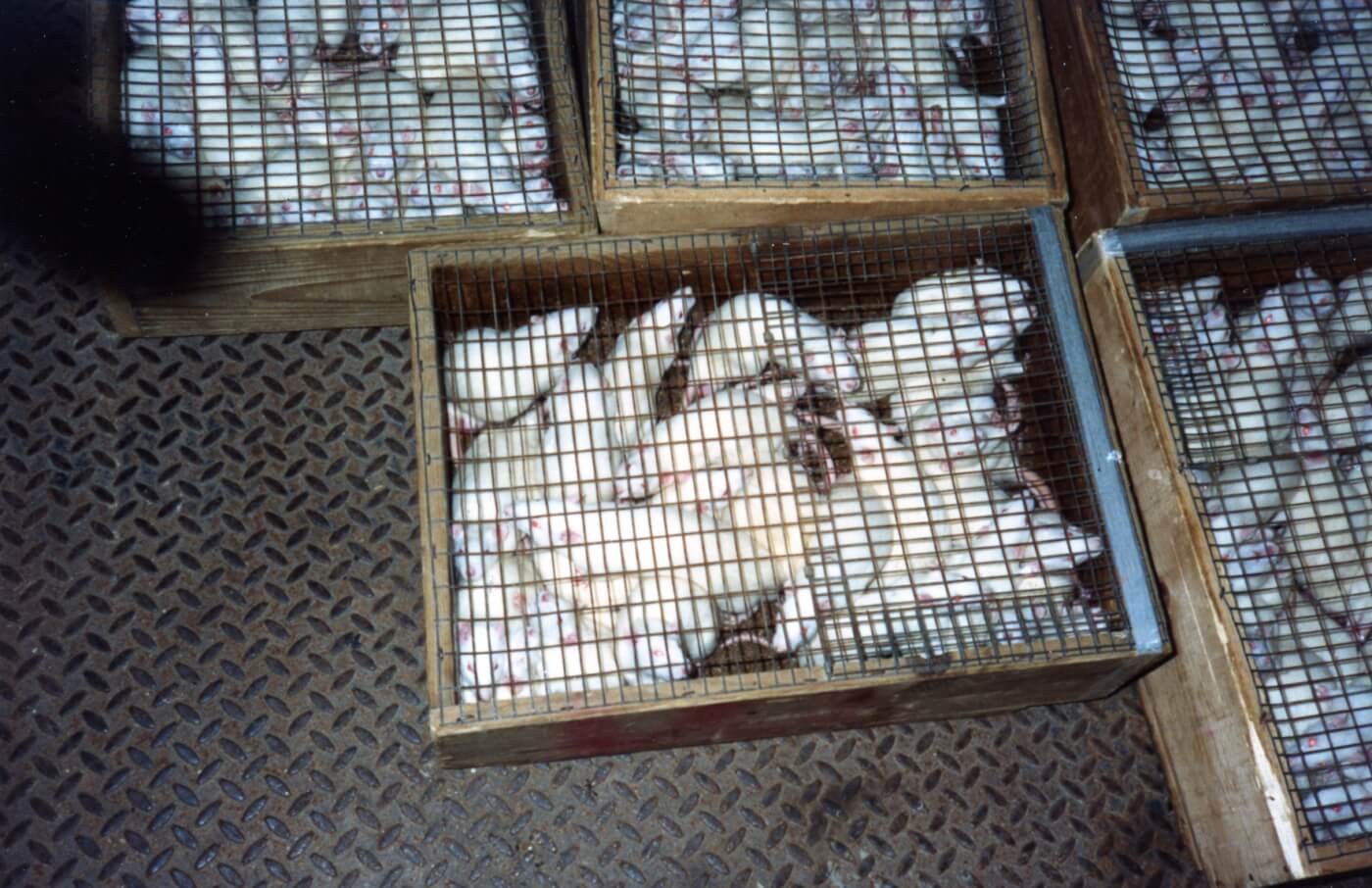
Later, when I became a professor of animal behavior and welfare, I’d often take my students to a nearby laboratory. Even though I would warn them about what they’d see inside, most would still come out shaken and crying.
I spent years believing that I could somehow improve animals’ lives in their laboratory prisons. But I eventually realized that the only way to achieve meaningful change for them is to get them out of laboratories. That’s when I began working at PETA U.K. and dedicated my life to stopping animal tests.

As PETA U.K.’s science policy adviser, I work with government and regulatory agencies to help replace animal tests with non-animal methods—and my fellow scientists in the PETA U.S. Regulatory Testing Department are doing so, too. Our goal is to promote animal-free testing as not only more ethical but also more cost-effective and beneficial for humans.
Every day, I work to end archaic chemical and cosmetics tests on animals, and I’m supporting an increasing number of companies that are appealing regulatory decisions that require animal experiments. The PETA International Science Consortium Ltd. (of which PETA U.S. and PETA U.K. are members) is promoting and funding the development of cutting-edge technology to replace the use of animals in experiments.
In the coming months, millions of sensitive animals will be locked in cages and used in cruel, painful experiments. I’ve seen their misery firsthand—we need to do everything that we can to end it.
Today, you have a great opportunity to help. Please make a gift to PETA’s Animals Out (of the Labs) Matching-Gift Challenge to support my colleagues’ critical work to end experiments on animals. Every donation will be matched dollar for dollar up to the $500,000 campaign goal, doubling your impact on PETA’s vital work to stop the suffering, imprisonment, and killing of animals in laboratories all over the world.

